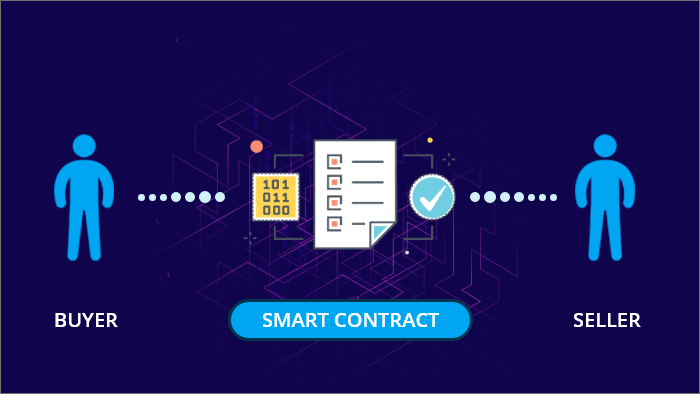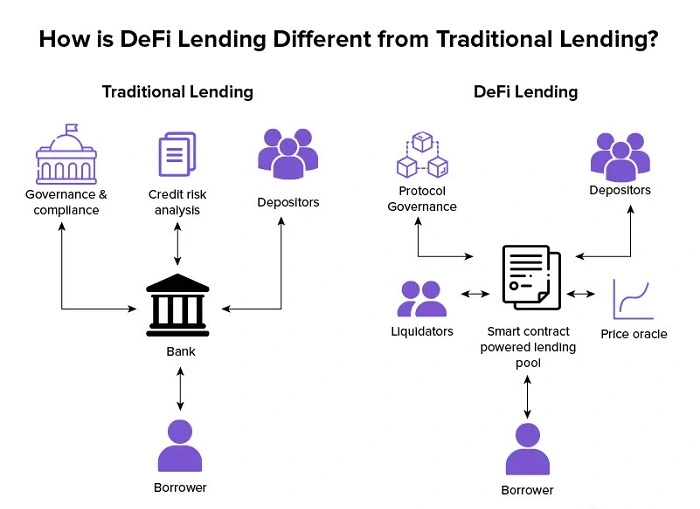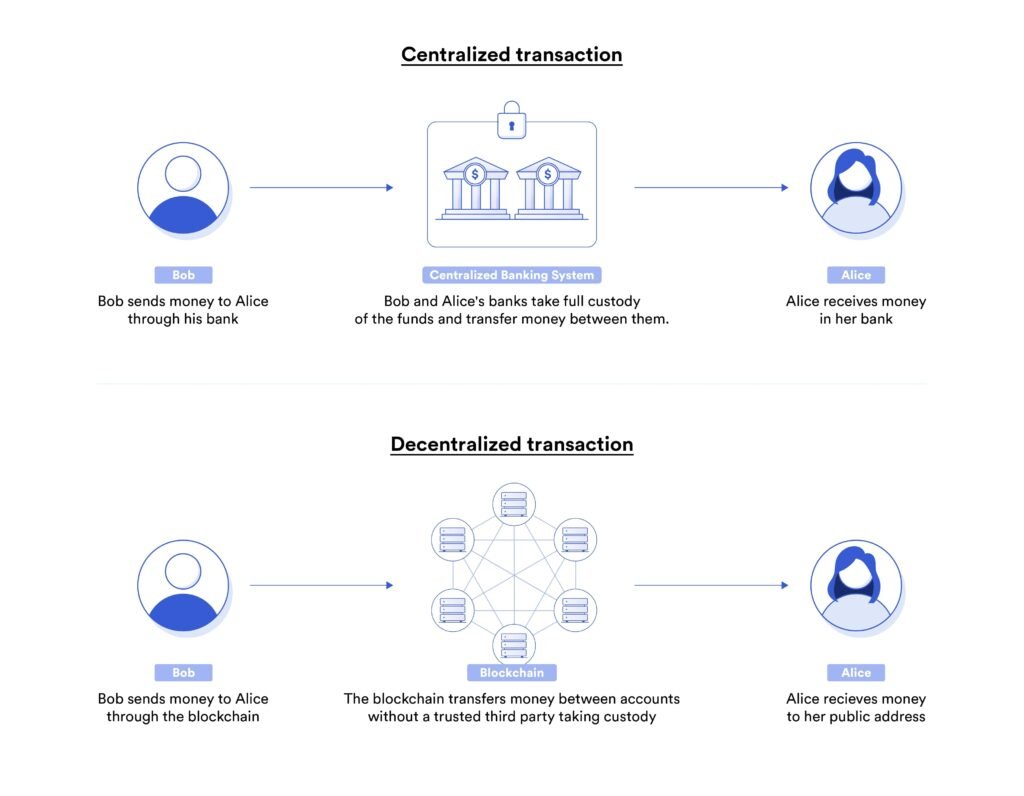Have you ever wondered how smart contracts can bring security to decentralized finance (DeFi) transactions? With the increasing adoption of DeFi platforms, it’s essential to understand the mechanisms that keep your assets safe while you interact within this innovative financial ecosystem. Let’s break down the role of smart contracts in ensuring security in DeFi.
What Are Smart Contracts?
Smart contracts are self-executing contracts with the terms of the agreement directly written into code. They run on blockchain networks, primarily Ethereum, which eliminates the need for intermediaries. You can think of smart contracts as digital vending machines; when you input the right command or payment, they dispense the desired outcome automatically.
How Do Smart Contracts Work?
When you create a smart contract, you’re essentially writing a set of rules and conditions that must be met for the contract to execute. The contract gets deployed to the blockchain, where it becomes immutable and transparent, meaning that once it is live, you cannot change its code.
The execution of a smart contract is triggered automatically when its conditions are fulfilled. This efficiency significantly reduces the chances of errors or fraud, as the contract operates under predefined rules without the influence of external parties.
Why Use Smart Contracts in DeFi?
Using smart contracts in DeFi offers several advantages, especially in terms of security:
- Automation: Since they execute automatically, risks associated with human error or manipulation are minimized.
- Transparency: Smart contracts operate on a public blockchain, allowing you to review the code and transactions.
- Trustlessness: You don’t need to trust a central authority or intermediary; the code itself governs the transaction.
By understanding these benefits, you can see why smart contracts are pivotal in the DeFi landscape.

This image is property of d3lkc3n5th01x7.cloudfront.net.
Security Features of Smart Contracts
Smart contracts incorporate multiple security features that enhance the safety of your transactions. Each feature plays a role in protecting users from various threats, which are crucial in a digital financial environment.
Immutability
Once deployed, the code of a smart contract cannot be changed. This immutability is significant for security because it prevents malicious actors from altering the contract once it is active. If issues were to arise or vulnerabilities discovered after deployment, they cannot be corrected without creating an entirely new smart contract.
Transparency
Because smart contracts are stored on a public blockchain, anyone can review them. You can verify the logic and rules encoded in the smart contract, which reduces the risk of hidden agendas or malfeasance. When you’re participating in a DeFi project, this level of transparency allows you to feel confident about where your funds are going.
Cryptographic Security
Smart contracts use cryptographic principles to secure transactions. Every transaction is encrypted and linked to previous transactions, forming an immutable chain. This cryptographic framework ensures that transactions are tamper-proof, meaning that once a transaction is confirmed, it cannot be altered or reversed.
Automated Audits
You may not think about audits every time you engage in a transaction, but automated auditing processes are carried out every time a smart contract executes. These audits occur in real time, enabling the identification of errors or vulnerabilities in the code during its operation. If something goes wrong, the contract will not execute, protecting your funds from unfavorable outcomes.
Decentralization
Smart contracts operate on decentralized networks, which means there are multiple copies of the contract distributed across various nodes in the network. This decentralization makes it difficult for any single entity to take control or manipulate the contract, enhancing its security.

This image is property of synodus.com.
Common Vulnerabilities in Smart Contracts
Even with their robust security features, smart contracts are not entirely free from vulnerabilities. Understanding these common weaknesses can help you make informed decisions when dealing with DeFi projects.
Coding Errors
Even the most attentive developers can make mistakes. Common coding errors can lead to vulnerabilities in smart contracts, such as:
- Reentrancy Bugs: This occurs when a contract calls another contract repeatedly before the first transaction is completed, potentially draining funds.
- Arithmetic Vulnerabilities: Failing to account for overflow, underflow, or other arithmetic failures can lead to unexpected results in contract execution.
It’s crucial to work with contracts that have undergone extensive testing and audits to minimize these risks.
Lack of Oracles Security
Oracles are essential for bringing data from the outside world to blockchain applications. However, if an oracle is compromised or provides incorrect data, it can lead to incorrect contract execution. Ensuring that an oracle is secure and reliable is vital to the success of your transaction.
Front-Running Attacks
In DeFi, front-running occurs when someone sees your pending transaction and exploits that knowledge to execute their transaction first. This typically happens with traders trying to get a better price or position ahead of your trade, potentially leading to your transaction being executed at a disadvantage.
Incomplete Testing
Some smart contracts may not undergo sufficient testing before deployment. As a result, untested scenarios can arise that expose them to security risks. Comprehensive testing and simulation of various scenarios can help identify potential issues before a contract goes live.

This image is property of fastercapital.com.
Best Practices for Ensuring Security
To ensure your DeFi transactions remain secure, here are some best practices to follow:
Use Reputable Platforms
Research the DeFi platforms and projects you’re considering. Look for projects that have been audited by reputable firms and have a strong community of users. Platforms with a proven track record of security will typically be more reliable.
Verify Smart Contract Code
Always review the code of the smart contracts you’re interacting with when possible. While this may require some coding knowledge, many communities can help you understand what the code entails and whether any red flags are present.
Enable Two-Factor Authentication (2FA)
For additional security, use platforms that offer two-factor authentication. While smart contracts provide a layer of security on their own, having an added layer of protection ensures that your access and transactions remain safeguarded.
Stay Informed
Keeping yourself updated with the latest developments in the DeFi space is essential. Security vulnerabilities can surface at any time, and being informed helps you to act quickly. Follow credible news sources, subscribe to updates from projects, and engage with community discussions.
Limit Exposure
It can be tempting to invest heavily in DeFi projects, but it’s wise to diversify your investments. By spreading your assets across different platforms and projects, you can limit the impact of a potential security breach in one area.

This image is property of www.solulab.com.
The Future of Smart Contracts in DeFi
Smart contracts are revolutionizing how financial transactions are conducted in a decentralized manner. Looking ahead, we can expect several trends and advancements that will further enhance their security and functionality.
Enhanced Security Protocols
As vulnerabilities are discovered and exploited, developers are continually evolving security protocols. Expect to see more sophisticated methods for auditing and securing smart contracts, incorporating artificial intelligence to predict vulnerabilities before they can be exploited.
Improved User Interfaces
Current DeFi platforms can be daunting, particularly for newcomers. Innovations in user interfaces will likely make it easier for you to navigate complex transactions while integrating better security features such as alerts for potential risks.
Cross-Chain Functionality
The future may hold a more interconnected DeFi ecosystem. Cross-chain smart contracts could allow for transactions between different blockchains, increasing liquidity and opportunities while maintaining security across various systems.
Regulatory Compliance
As DeFi continues to grow, regulatory bodies are beginning to pay attention. Future smart contracts may have compliance features embedded directly into their code, ensuring that they adhere to legal standards without sacrificing the core principles of decentralization.

This image is property of cdn.prod.website-files.com.
Conclusion
Smart contracts play a fundamental role in the security of DeFi transactions, offering automation, transparency, and trustlessness in a way that traditional finance cannot. By understanding how they work and recognizing potential vulnerabilities, you can better navigate this exciting landscape.
Staying informed and practicing security best practices ensures that your experience in the DeFi space is not only innovative but also secure. Embrace the potential of smart contracts while keeping an eye on your security—your assets deserve the best protection available in this digital age.

